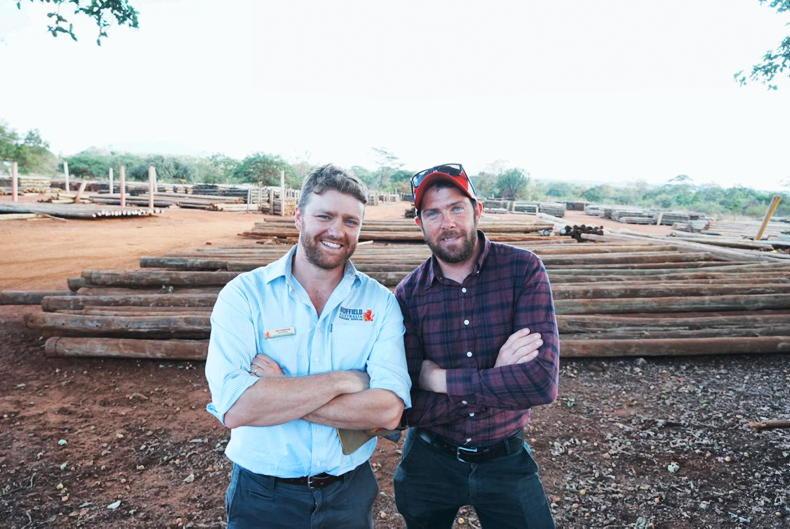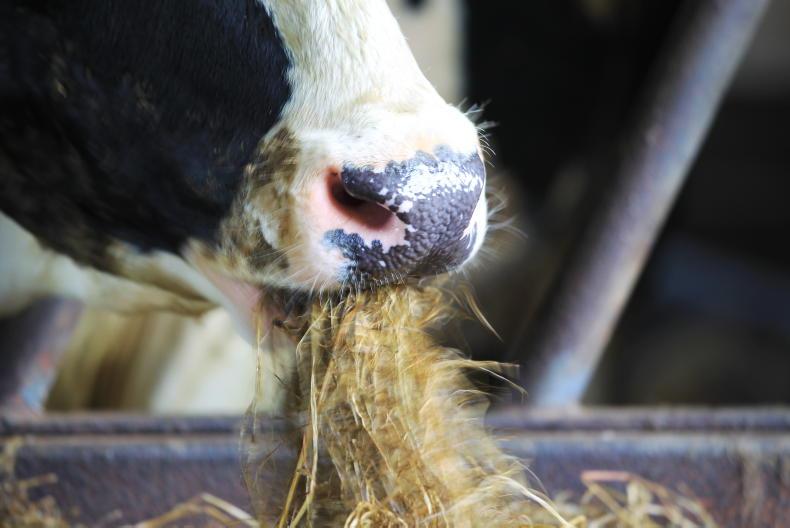Agriculture Minister Andrew Muir has insisted that farmer views will still be to the fore, despite a new 12-member TB Partnership Steering Group having only one representative each from the Ulster Farmers’ Union (UFU) and NI Agricultural Producers’ Association (NIAPA).
The new group has been brought together to consider proposals set out in a review of TB by chief vet Brian Dooher, published last November, and tasked with agreeing a delivery plan around TB by the end of March 2025.
“The group is representative of all the relevant stakeholders that should be there. We need to be careful we don’t set up a group so big that things don’t get done,” said Minister Muir, during an interview with the Irish Farmers Journal on Tuesday.
He contended that it was not about weight of numbers in the room, but instead the capacity of people to work together.
“I hear the voice of the UFU day and daily – they are not shy at coming forward. They are very strong advocates of their cause,” he added.
The Dooher report sets out proposals around three main pillars of people, cattle and wildlife.
Action
“Herd infection is far too high. I want to take action on all three,” said Minister Muir.
So, one year into office, has his view evolved, particularly around the need to deal with TB in wildlife?
“My opinion on TB – has it changed? Yes, I have got to be honest with you, you are not being human if you do not see the impact it is having on farmers. It is just devastating,” responded the minister.
While plotting a new way forward on TB, NI will also have to comply with various aspects of EU Animal Health Law, due to post-Brexit rules which allow NI to freely trade into the EU. That EU law includes a requirement to introduce either pre-or post-movement TB testing.
However, last month, when legislation on rules relating to animal identification, registration and movement, went before the Stormont Agriculture committee, Unionist members abstained in a vote, given that the updated legislation references this EU law.
That decision left Minister Muir “bamboozled”.
“You can’t, on the one hand, stand on platforms and say you support the agri-food industry and farmers and then not support legislation which is absolutely essential for the industry, trade and consumer confidence. Those people need to give their heads a wobble,” he argued.
The minister added that counterparts in Scotland would “give their right arm” for the dual market access available to the NI agri-food industry.
Farmers need to be aware of nutrient rules
A public consultation on potential updates to rules under the Nutrients Action Programme (NAP) has been delayed slightly, but should be published in the spring, Minister Muir told the Irish Farmers Journal.
Contained within the NAP are the requirements around closed periods for slurry and fertiliser application as well as various rules around when low-emission slurry spreading equipment should be used.
Complex
“The NAP is a very complex document. We need to find a way to increase people’s awareness of what the rules are,” said the minister.
He maintained that most farmers are “excellent custodians of the countryside” and his preference is very much to educate and incentivise, rather than regulate and enforce the rules.
Devising new schemes is ‘torturous’
Devising and implementing our own farm schemes post-Brexit is “torturous” and that view is shared by colleagues in other devolved regions, said Minister Muir.
Despite the challenges, he said a “very significant win” in his first year in office has been to secure a ringfenced budget for agriculture from the Stormont Executive. In addition, £12m of capital funding has been allocated in the next financial year to support farmers as part of a “Just Transition” towards lower greenhouse gas emissions.
Looking ahead, the minister is keen that new schemes are simple and easy to access by farmers. He is hopeful of a strong uptake in new agri-environment payments under the Farming with Nature package of measures, although how much money will be moved out of area-based payments to fund these measures is not yet clear.
Budget pressure
There is also the potential for capital funding within DAERA to be channelled into Farming with Nature, although that budget is already under pressure due to the need to upgrade student facilities at Greenmount and Loughry.
If a significant amount of money is taken off area payments and put into Farming with Nature, it might increase the likelihood that some farmers decide to forgo payments, in the knowledge they won’t have to comply with rules attached to schemes. These rules might be in law, but ultimately compliance is easiest to achieve via threats of penalties to farm payments.
“No one is untouchable under my watch. No one. Anyone who is breaking the rules is doing a disservice to the farming community in NI and we need to distance ourselves from them,” responded the minister.
The law around ammonia emissions
Constructive discussions have been held with the UFU on how to potentially break the impasse on ammonia emissions and planning permission for livestock sheds, confirmed Minister Muir.
He said that DAERA has three objectives, which involve compliance with the law, reducing emissions and then looking at practical issues, such as replacement sheds.
“There has been a lot of work done on this and we shouldn’t underestimate how technology is advancing in this area,” said the Minister.
However, while he said new sheds are not off the agenda, the immediate priority is planning for replacement buildings.
“We have to be very clear that any new buildings and additional livestock has to come at no detriment to the environment – that is non-negotiable,” he said.
IHT reforms are ‘a disgrace’
The biggest issue in his first year in office was the proposed reform of agricultural property relief from inheritance tax (IHT) announced in the autumn budget, confirmed Minister Muir.
He said those changes, planned for April 2026, are “a disgrace” and he remains “very concerned” at the continued refusal of the British chancellor Rachel Reeves or her officials in Treasury to engage with farmers.
He said that Treasury officials were also invited to a meeting of UK farming ministers last Monday, but again, they did not attend.
Minister Muir’s own view is that the best way ahead would be for government to agree that family farms passed down the generations remain free from IHT.
But if the farm was sold within a certain time period after transfer, then full IHT charges would apply.
“To me, that seems a reasonable position and I don’t understand why Treasury wouldn’t support that,” he said.









SHARING OPTIONS